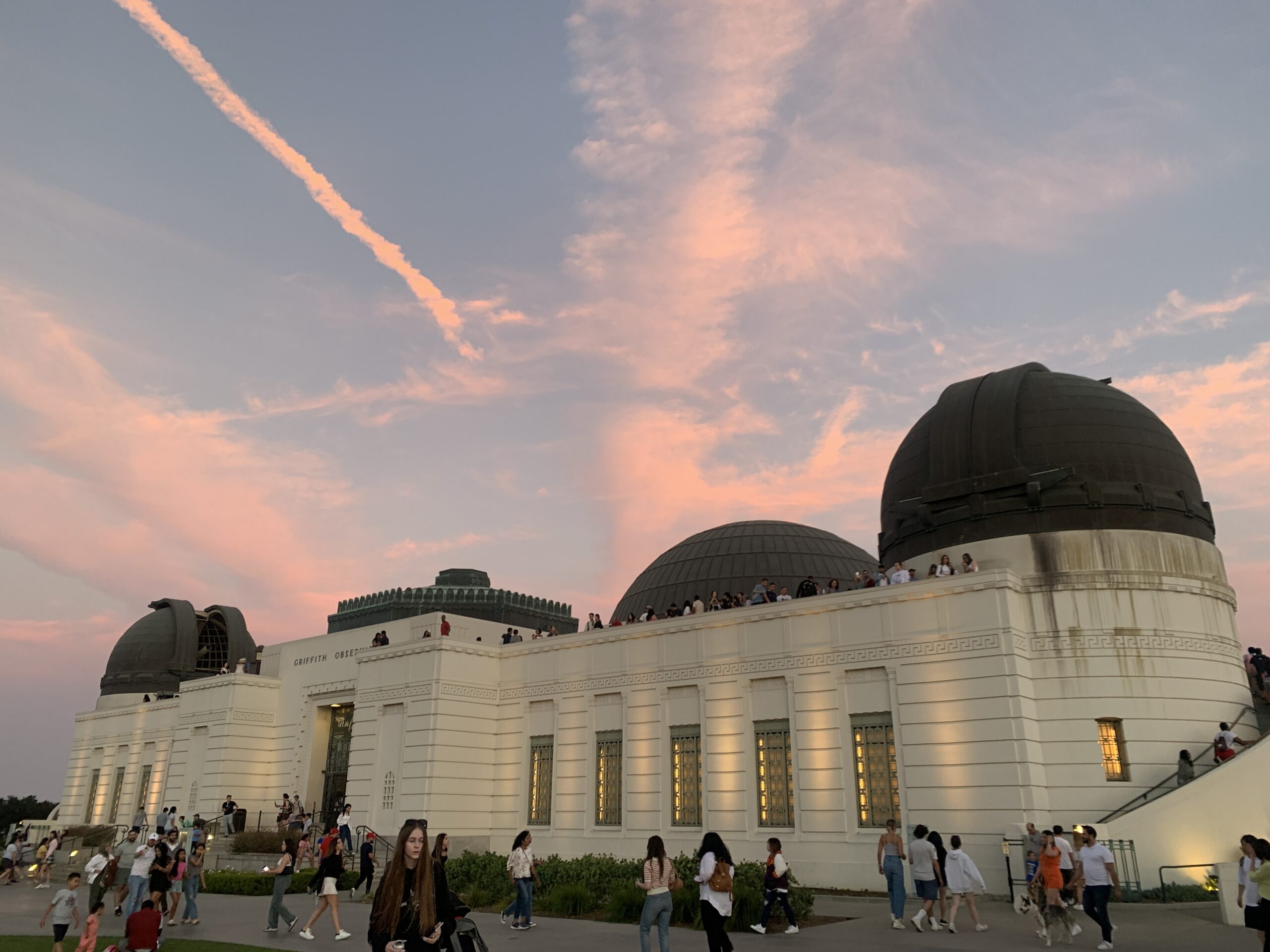We aren’t specialized astrophysicists. We aren’t professors, academics, or researchers. We aren’t telescope technicians, or operators. We are definitely not astrologers. However, we are astronomers–professional astronomers! and professional educators.
The dictionary defines an astronomer as “a person who is skilled in astronomy or who makes observations of celestial phenomena.” Astronomy is defined as “the study of objects and matter outside the earth’s atmosphere and of their physical and chemical properties.” Study is “the application of the mental faculties to the acquisition of knowledge, to a specific subject, or in a particular field.” We are definitely “skilled” in the “study of astronomy.” We have all acquired broad, thorough, accurate knowledge across the field of astronomy, which we use all the time at work. We can answer almost every question we are asked. We must keep up with news and discoveries to do our job well (e.g., we can’t tell people the wrong number of moons for Saturn). We “apply the mental faculties” whenever we provide thoughtful answers to visitors’ questions. We are always observing with the telescopes, monitoring planetary positions, and pointing out features (e.g., pitch of Saturn’s rings, positions of Jupiter’s moons). We have the expertise to select the objects in the sky which look best depending on the time of year and atmospheric conditions. Note there’s nothing here about research/discoveries, so being a “researcher” is not necessary to be an astronomer. Simply using our knowledge and making observations is enough. So, we’re definitely “astronomers.”
There are a few different uses of “professional” to describe a person. First, I’ll make the distinction between professional and amateur since there are so many amateur astronomers out there (and many of us used to be one). A common definition of professional is “participating for gain or livelihood in an activity or field of endeavor often engaged in by amateurs.” Since we are paid to use our astronomer knowledge and skills, I believe it would be inaccurate to call us amateurs. Plus, we are not casual observers–we really maximizing our skillset (described above) to perform our job. Another definition of professional is “characterized by or conforming to the technical or ethical standards of a profession.” We behave as professionals especially when we answer people directly, truthfully. When we don’t know the exact answer to a question, we say “I don’t know, but I could look that up really quickly so I can give you the full answer.” Personally, I really love this policy, and think it gives us more credibility, which is one of the tenets of modern science. In addition, some may try to discount our professionalism because we do this part-time. Based on these common definitions, I think the distinction between “full-time astronomer” and “part-time astronomer” does not equate to “professional” and “amateur.”
You may have an idealized image of an astronomer in your mind who is a researching academic with grants and a lab, and you feel lesser since you work in a museum. But we aren’t just volunteers serving a niche audience, we run the scopes at Griffith Observatory, a highly respected, globally recognized public institution serving an international audience. Our job is recognized as an astronomer’s profession–I’m a member of AAS because of this job (it’s a different category from the researchers, but still a member). You can have the opinion we are lower on the totem pole than research scientists, and still see we count as professional astronomers.
Of course, we are not only acting as astronomers, but also educators. With how much focus there is on the public, I think we are better described as “professional astronomers and educators.” Educators traditionally work in schools and teach students. As museum educators, we work in outreach education. Outreach is “the extending of services or assistance beyond current or usual limits.” Just because it’s outside the usual limits of education doesn’t mean it isn’t education, and again, we’re paid to do it at a big institution. So, we’re also “professional educators.”
Now, you might think because we are always educating, we are just professional astronomy educators, and not astronomers–but we can be both. A math teacher/professor/educator is also a mathematician if they are a specialist or expert in the field of mathematics. A history teacher/professor/educator is also a historian if they have produced a scholarly synthesis of history. An astronomy teacher/professor/educator is also an astronomer if they fit the description from the first paragraph–which we do! The fact that almost all professional astrophysicists are required to teach at the university where they do their research is evidence enough that being an astronomer and educator simultaneously should not take away from our perceived professionalism.
Side note: I think we are doing both “outreach astronomy” and “outreach education,” which makes the title “professional outreach astronomer and educator” feel pretty awesome. The work we do at Griffith Observatory is only possible if we are astronomers and educators. We are only hired if we are already or can clearly be trained to be astronomers and educators. We study astronomy, we observe celestial objects, and we educate people–and we are paid to do so. We are professional astronomers and educators.

